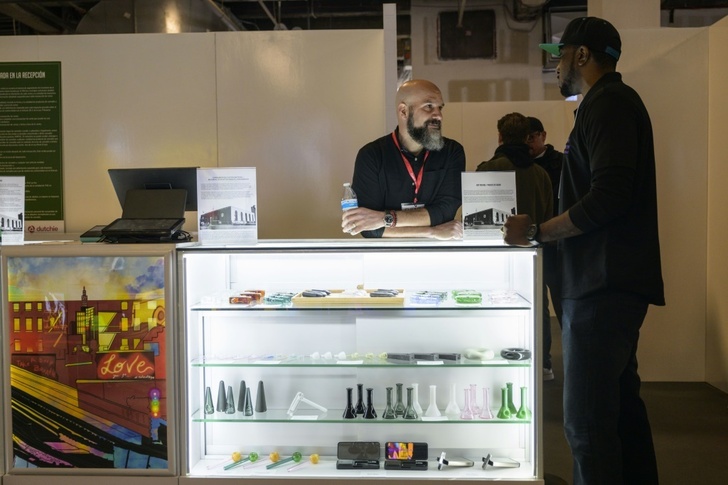As New York state prepares to open its first legal cannabis stores, possibly before the end of the year, AFP details what you need to know about the new market.
- Offenders and non-profits -
Adult recreational use of Cannabis is already legal in about 20 American states. In terms of social equity, New York's policy goes further than most, according to observers.
The state plans to grant the first 150 licenses to people previously convicted for possession or sale of the drug, and associations who help such offenders.
The intention is to offer reparations of sorts to African-American and Hispanic communities who were disproportionately arrested and charged during the decades weed was illegal.
Some 900 applications have been filed and 28 permits issued to businesses. Eight associations have also received licenses.
What could be the first official store is backed by the Housing Works non-profit, which helps ex-prisoners, the homeless and people with HIV and AIDS.
- Deliveries and restrictions -
After the first 150 licenses are granted, the market will open up to all businesses but with rules to reduce market dominance.
Specifically, a company that grows or processes cannabis will not be allowed to distribute the drug and vice versa. Retailers will be allowed to deliver cannabis but will be restricted to 25 employees for that purpose.
As with alcohol, sales are only allowed to people over 21 years old. An adult can possess up to 85 grams of cannabis flower or 24 grams of concentrated cannabis, which is more potent. A store cannot sell someone more than this limit.
Cannabis is theoretically still prohibited under US federal law, meaning it is illegal to possess it when crossing state lines or entering and leaving the country.
- Potency tax -
In addition to the taxes paid by the consumer at purchase, New York plans to tax vendors based on the plant's psychoactive content. Higher tetrahydrocannabinol, or THC, means higher taxes.
Dan Livingston, director of the Cannabis Association of New York, fears this will lead to high prices and competition from illegal sellers. He also worries it will encourage vendors to sell stronger cannabis.
"The consumer could end up getting a lot more high than they really anticipated," he said.
New York state promises to use tax revenues generated by the sale of cannabis for addiction prevention, education and grants to associations who help users.
In a 2018 report, it estimated the illegal market was worth between $1.7 billion and $3.5 billion annually, equating to between $248 million and $677 million in potential annual taxes.
- Legal challenge -
The granting of licenses has been slowed down because of a legal challenge by a company whose application was rejected, mainly on the grounds that its majority owner was convicted of a cannabis-related offense in the state of Michigan and not in New York.
A federal judge hearing the case has ordered that no licenses be issued in the five jurisdictions involved in the dispute, including Brooklyn, New York City's most populous borough.
arb/nr/kar/rle/pdh/mdl/md
© Agence France-Presse
Your content is great. However, if any of the content contained herein violates any rights of yours, including those of copyright, please contact us immediately by e-mail at media[@]kissrpr.com.
Source: Story.KISSPR.com

